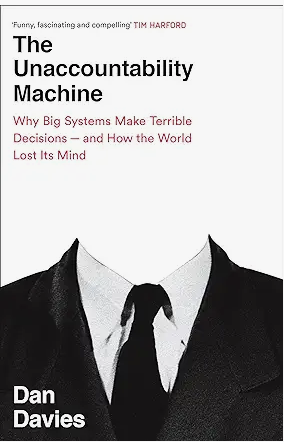Washing up

Provence, June 2024.
Quote of the Day
“Loneliness as a situation can be corrected, but as a state of mind it is an incurable illness”
- Vladimir Nabokov
Musical alternative to the morning’s radio news
Wagner | Tannhäuser Overture | Klaus Tennstedt with the London Philharmonic Orchestra
Wonderful, and it made me think of Thomas Beecham, who founded the LPO and in 1936 took the orchestra to Germany, where Hitler was in the audience. A piece in the Guardian (possibly from an obituary) tells the story:
Why did they go? “He was proud of them,” says Lady Beecham, “and he wanted to take them to a country where there were many fine orchestras, to show them what a fine orchestra it was.” The story rings of an extraordinary figurative nose-thumbing that only Beecham could have carried off. Dr Berta Geissmar, personal assistant to conductor Wilhelm Furtwängler, was Jewish and had fled the Nazi regime for London, where Beecham promptly employed her as his secretary. “And he took her with him to Germany,” says Lady Beecham. “She was absolutely terrified for the whole tour that they’d take her away. But with him beside her, they could do nothing at all.” At the Berlin concert, when he saw Hitler applauding, Beecham turned to the orchestra and said, “The old bugger seems to like it!” The remark went out on the radio across Europe. Had Beecham really forgotten that the concert was being broadcast?
Long Read of the Day
The Bluestocking, vol 325
Helen Lewis is one of the sharpest writers on politics and technology around, and her weekly Substack is invariably striking. Saturday’s edition was a joy, not least because she articulated thoughts that many of us were having on Friday morning:
Keir Starmer is prime minister, and that means more than getting to stand behind the lectern and do PMQs. I just read a piece saying the Rwanda plan was “dead” and my brain went: oh, yeah! When you’re in government, you can just . . . do things! The legislative agenda will no longer be plotted around “what will make Suella Braverman and the other Telegraph columnists leave us alone for a bit”. We don’t have a prime minister who would need to be put behind a puppy gate if he caught an infectious disease. Never again will I hear breathless whispers about “how many letters Graham Brady has”. We might even . . build some bloody houses. A new dawn has broken, has it not?
For me, one of the nicest things about this election is the sheer luxury of remembering all the people whose opinions no longer matter. Sorry, Grant Shapps, but your much vaunted “ability to count” will now be inflicted on the private sector. Farewell, Jacob Rees-Mogg, have fun on the witness-protection programme that is your GB News show. Liz Truss, I will see you at CPAC, where absolutely no one will understand why you are there…
Great stuff. Personally, I’ve always seen Rees-Mogg as an unctuous Savile Row tailor who can only do double-breasted suits. The trouble is, to be a tailor you have to have some special skills, and being unctuous is the only one that Mogg possesses.
(His old man William — or ‘Pater’, as Mogg probably called him) was more interesting than most people realise — and not just because he was Editor of The Times from 1967 to 1981. With James Dale Davidson he wrote The Sovereign Individual: Mastering the Transition to the Information Age about “the fourth stage of human society,” which will apparently liberate individuals as never before, irrevocably altering the power of government. It became required reading for Peter Thiel and the wilder fringes of the Silicon Valley libertarian crowd.)
Microsoft’s Recall feature wasn’t that intelligent
Yesterday’s Observer column:
On 20 May, Yusuf Mehdi, a cove who rejoices in the magnificent title of executive vice-president, consumer chief marketing officer of Microsoft, launched its Copilot+ PCs, a “new category” of Windows machines that are “designed for AI”. They are, needless to say, “the fastest, most intelligent Windows PCs ever built” and they will “enable you to do things you can’t on any other PC”.
What kinds of things? Well, how about generating and refining AI images in near real-time directly on the computer? Bridging language barriers by translating audio from 40-plus languages into English? Or enabling you to “easily find and remember what you have seen in your PC”.
Eh? This remarkable memory prosthesis is called Recall. It takes constant screenshots in the background while you go about your daily computer business. Microsoft’s Copilot+ machine-learning tech then scans (and “reads”) each of these screenshots in order to make a searchable database of every action performed on your computer and then stores it on the machine’s disk. So not only will you be able to search for a website you had previously visited, but you can also search for a very specific thing that you read or saw on that site. That jacket you saw on a tab a few weeks ago but you simply cannot remember who was selling it. The AI, though, knows about jackets and can find it…
UK politics
TheyWorkForYou – now with (almost) all new MPs
mySociety is a terrific example of public-interest technology. It provides digital tools that make it easy for British residents to communicate with, and monitor, their public representatives. One of these is their “They Work for You” service, which makes it easy to find your MP and send an email to her or him. What amazed me on Friday morning was to find that they had already updated the site as new MPs were confirmed as election results were coming in.
It was an impressively agile response. Shows how this tech can revitalise democratic institutions.
My commonplace booklet
Have you been Kodaked?
An interesting Smithsonian essay on “How the Rise of the Camera Launched a Fight to Protect Gilded Age Americans’ Privacy”. The Box Brownie was the Instagram of its age.
Feedback
On quotations about old age, Gally Maxwell reminded me that Lewis Wolpert included many quotable comments in his book, You’re Looking Very Well: The Surprising Nature of Getting Old.
For example:
”One understands the viewpoint of Agatha Christie: ‘I married an archaeologist because the older I grow, the more he appreciates me.'” (p197)
And
”Edward Grey put it: ‘I am getting to an age when I can only enjoy the last sport left. It is called hunting for your spectacles.’” (p37)
This Blog is also available as an email three days a week. If you think that might suit you better, why not subscribe? One email on Mondays, Wednesdays and Fridays delivered to your inbox at 6am UK time. It’s free, and you can always unsubscribe if you conclude your inbox is full enough already!






